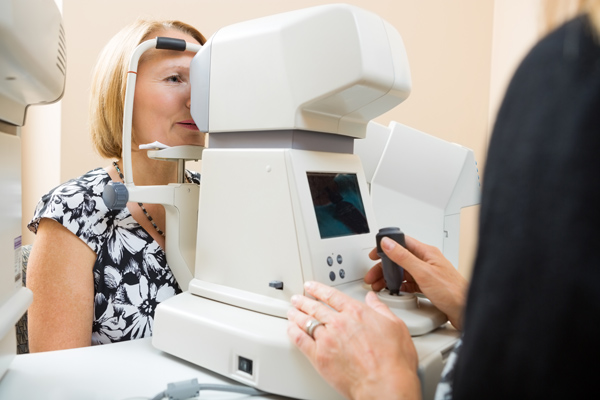For the first time, the FDA has approved a medical device system capable of adjusting an artificial lens after it’s been implanted in a patient’s eye during cataract surgery. The device could reduce the need for corrective glasses or contact lenses in patients who experience blurred vision due to refractive error after having their cataracts removed.
“Until now, refractive errors that are common following cataract surgery could only be corrected with glasses, contact lenses or refractive surgery,” said Dr. Malvina Eydelman, director of the Division of Ophthalmic, and Ear, Nose and Throat at the FDA’s Center for Devices and Radiological Health. “This system provides a new option for certain patients that allows the physician to make small adjustments to the implanted lens during several in-office procedures after the initial surgery to improve visual acuity without glasses.”
Cataracts occur when the eye’s natural lens is clouded, which commonly occurs in older adults. If left untreated, the condition can cause blindness, however surgical procedures to remove the cataract are so commonly-performed that the condition can almost always be reversed.
During cataract surgery, the natural lens is replaced with an artificial one. Unfortunately, the artificial lens may move during healing, causing blurred vision and a lack of focus which is known as refractive error.
RxSight Inc. Light Adjustable Lens and Light Delivery Device is the only intraocular lens (IOL) which can be adjusted post-surgery to give patients the best possible vision. The lens is made of a UV-reactive material, with three to four light treatments being administered to the patient within a few weeks of the cataract surgery.
“Predictable and accurate refractive outcomes are essential to ensure patients are happy with their vision following cataract surgery,” said Dr. Vance Thompson, of Vance Thompson Vision in Sioux Falls, SD. “Until my work as an investigator in the Phase III study of the Light Adjustable Lens, I had never encountered an IOL that consistently delivered the refractive accuracy that my premium cataract patients demand.
“Unfortunately, no matter what we do preoperatively with our measurements and mathematical calculations, the implant power is rarely perfect because of the variables of incision healing and the final effective lens position. With the Light Adjustable Lens, we can address these limitations for the first time ever and more predictably deliver the results patients desire. Light adjustable implants will change the way we do cataract surgery forever, and I am thrilled that I will be able to finally deliver this level of care to my patients.”
According to Eric Weinberg, Chief Commercial Officer for RxSight, the company will now focus on conducting post-approval research and look to expand the device’s indications.












Join or login to leave a comment
JOIN LOGIN